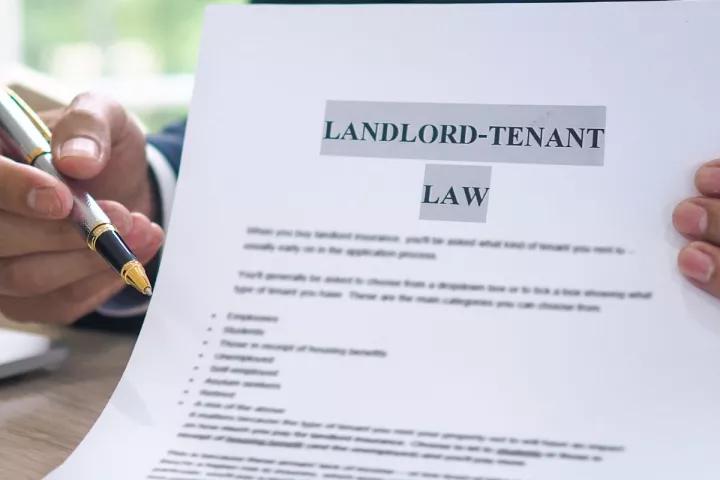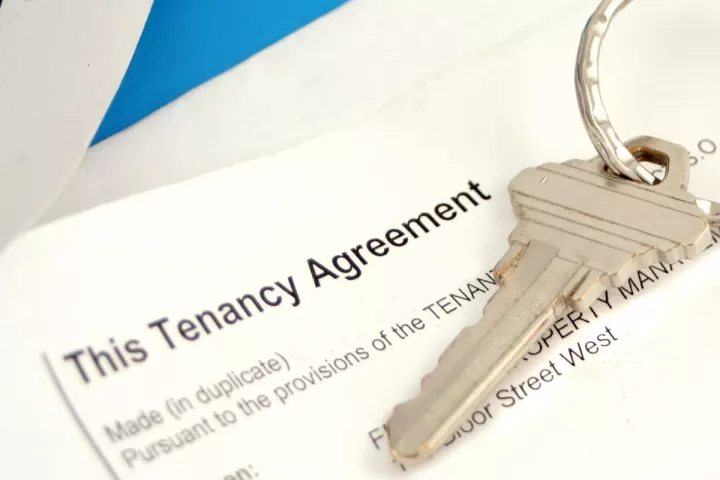Our helpline often takes calls relating to unlawful evictions. In many cases, landlords have given tenants a 'licence' agreement, rather than a tenancy agreement. However, the fact that a person’s contract refers to them as a licensee does not override the facts of the matter. If it is established that a tenancy in fact exists the landlord must follow the correct legal process to recover possession of the property.
Recovering possession of a property
As a starting point, it is important to understand that neither a tenant nor a licensee can be physically removed from a property without a court order. Where a court order has been obtained and the occupant has still not vacated, the order must be enforced by the Enforcement of Judgments Office. Any attempt to otherwise recover possession of a property against the occupant’s will is illegal.
However, most tenants or licensees leave voluntarily and peacefully when a landlord gives adequate notice. The amount of notice which must be given varies, depending on the status of the occupier, the length of occupation and any contractual terms which have been agreed.
Establishing if a tenancy exists
Regardless of what is written in the contract, the facts of the arrangement will determine whether a tenancy exists. Although a person may believe that they only have a licence to occupy a property, they will, in fact, have a tenancy if they enjoy exclusive possession of the property.
Exclusive possession means that the person is entitled to prevent others from entering a defined area of the premises, save for allowing access to the landlord or his agents for the purposes of inspection or repair.
An arrangement will be a licence agreement, rather than a tenancy, where the occupant simply has permission to use a space that remains in the possession of the landlord and over which the landlord exerts control.
Relevant case law
There is a wealth of case law on the distinction between a license to occupy and a tenancy.
The landmark case in determining whether a tenancy exists is Street V Mountford [1985], with Lord Templeman stating: "there is no doubt that the traditional distinction between a tenancy and a license of land lay in the grant of land for a term at a rent with exclusive possession”.
In Ashburn Anstalt v Arnold [1988], Fox LJ considered this judgment but found that the payment of rent was not intended by Lord Templeman as an absolute condition of a tenancy, stating:
“What the in the fundamental right which a tenant has which distinguishes his position from that of a licensee? It is an interest in land as distinct from a personal permission to enter the land and use it for some stipulated purpose or purposes. And how is it to be ascertained whether such an interest in land has been given? By seeing whether the grantee was given a legal right of exclusive possession of the land for a term or from year to year […] if he was a tenant”
Risks of incorrectly issuing licence agreements
In some recent cases, tenants in a shared property were issued with 'licence' agreements. The agent managing the properties had executed the agreements in this way in order to provide itself with more options to deal with sharing breakdowns and antisocial behaviour. It believed that referring to the occupants as licensees meant that they could be asked to leave with only a few days’ notice, rather than having a right to be served with proper notice in writing.
Housing Rights referred these cases to the environmental health department of the relevant district council. The council agreed that the occupants had exclusive possession of defined premises and, as such, were tenants who were entitled to at least 28 days’ notice to quit in writing. The council contacted the agents who agreed to allow the occupants back into their property, rather than face prosecution for unlawful eviction.
The risks to agents extend beyond the threat of prosecution under the provisions of the Rent Order. Consumer protection legislation can also be used against agents who operate in this manner, with one London agent fined over £20,000 for issuing sham licence agreements. In this case, the tenants who had been affected by this practice were paid compensation of £3,000.
Advice on tenancy agreements
People renting who are concerned about the terms in their agreement can contact Housing Rights helpline for advice.
Landlords and agents who need help can contact Landlord Advice.


